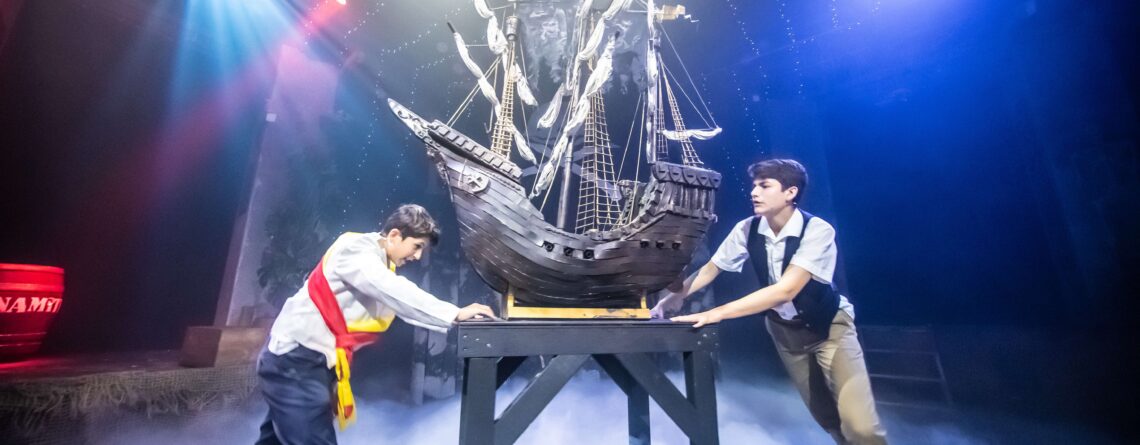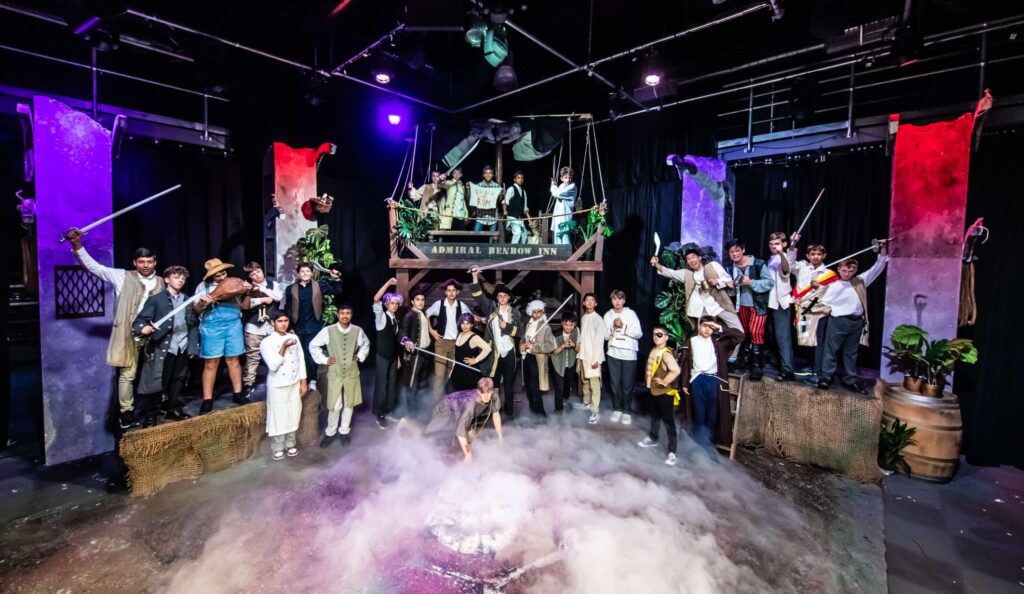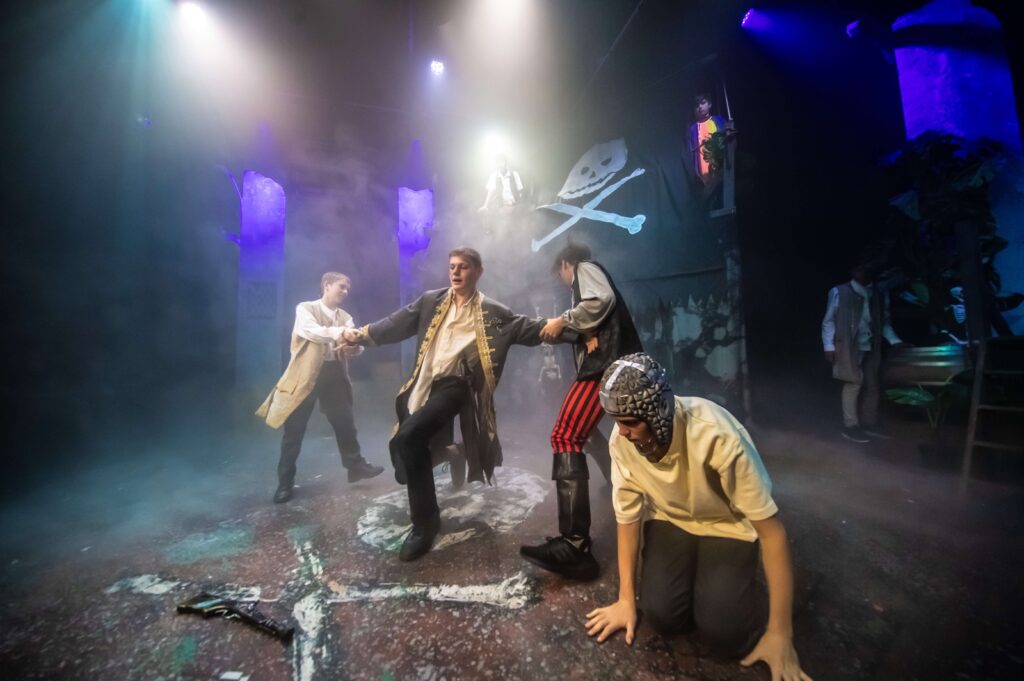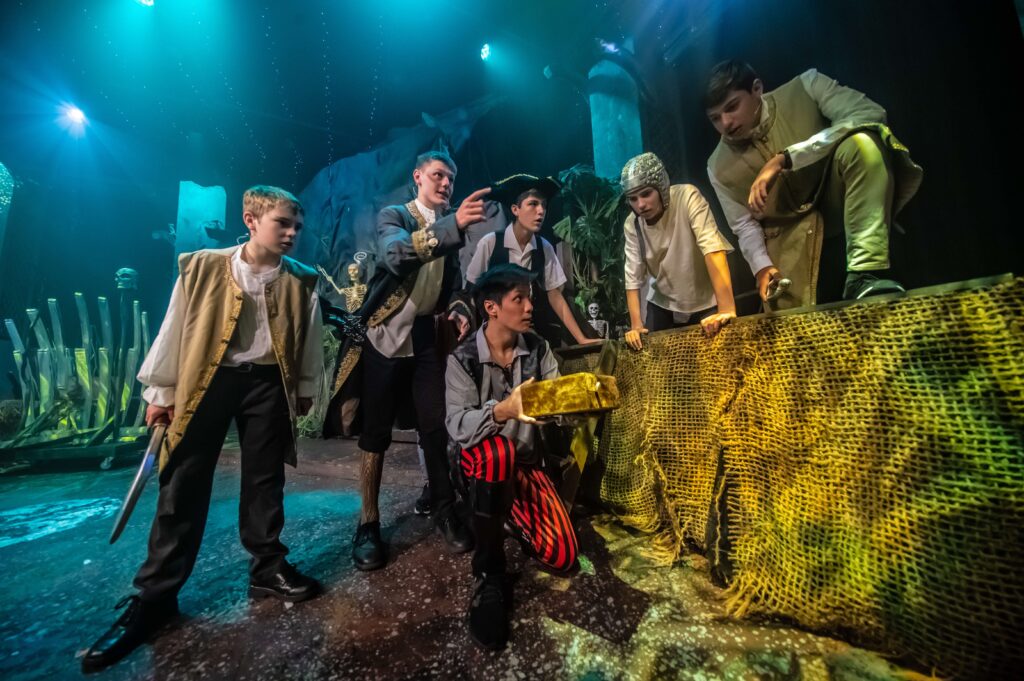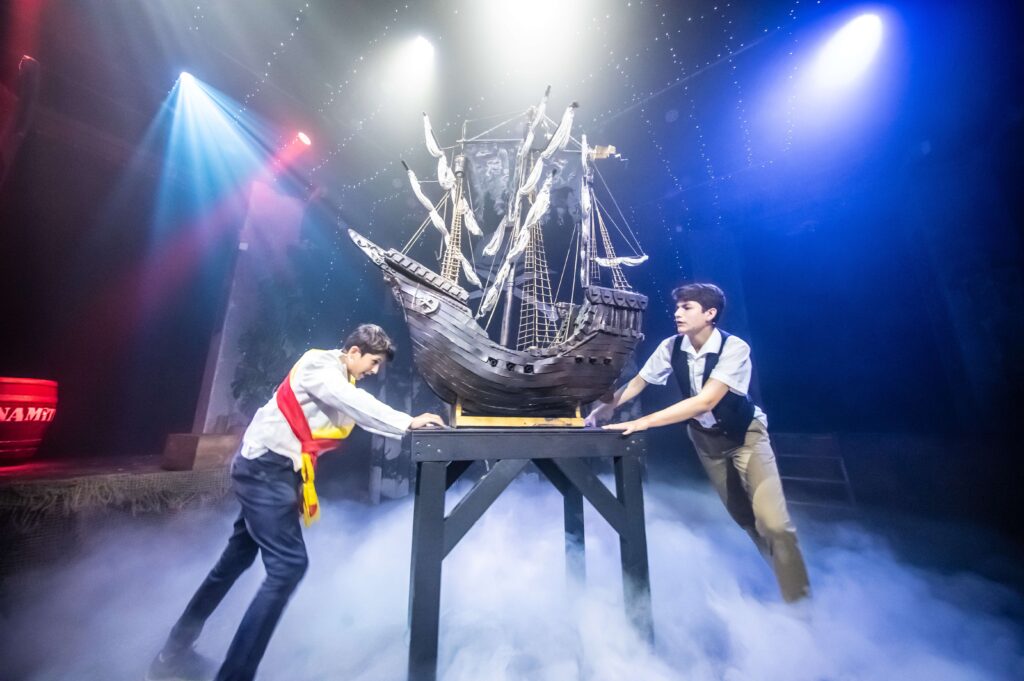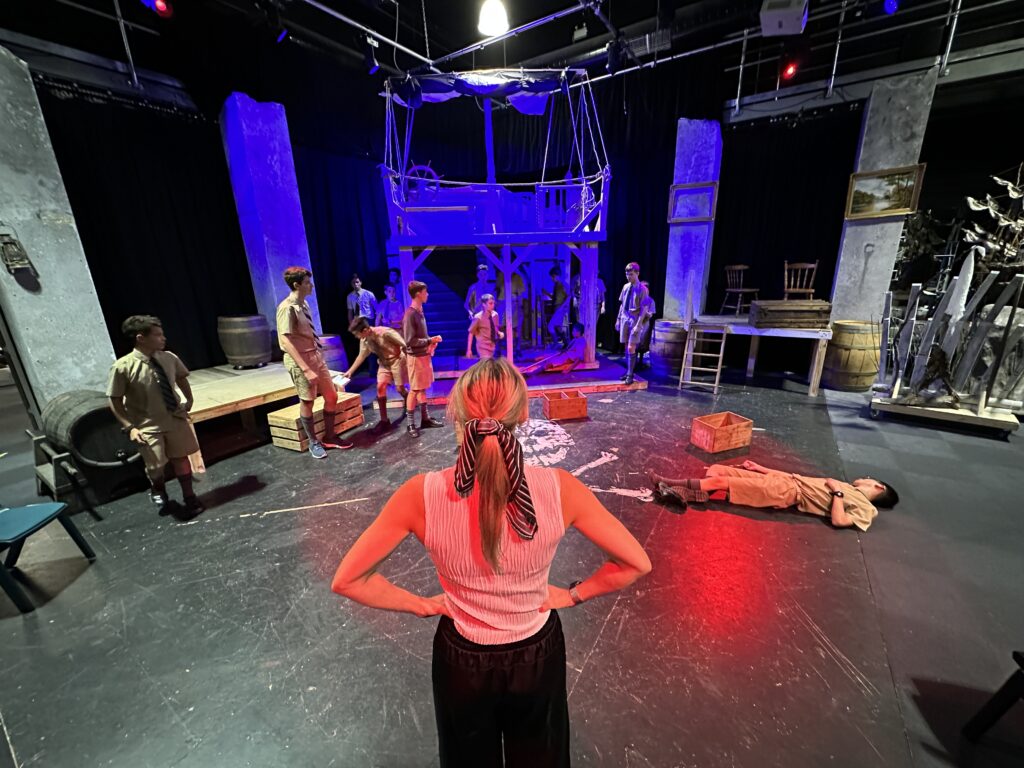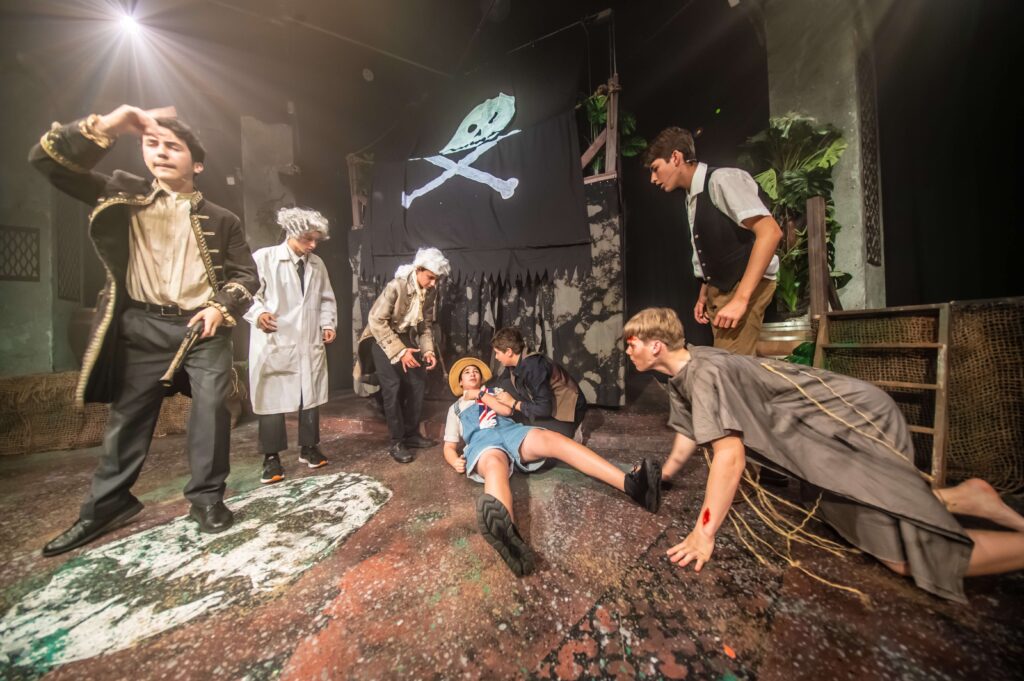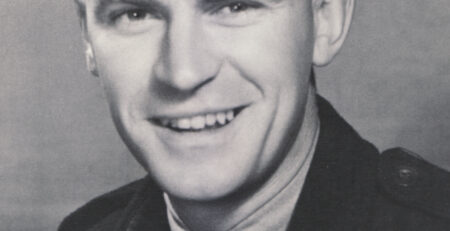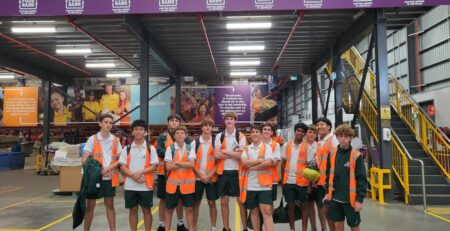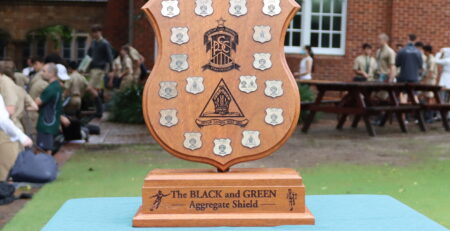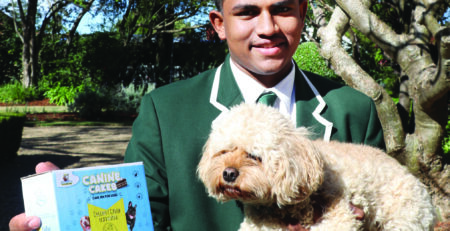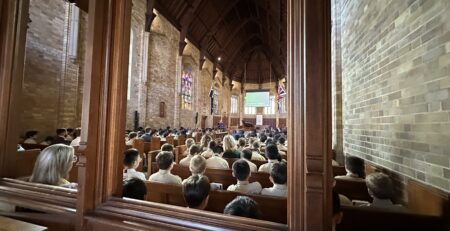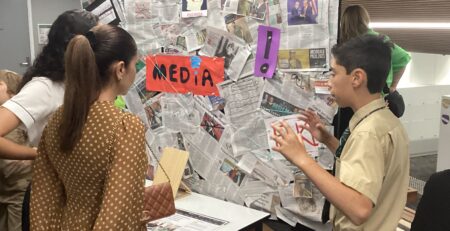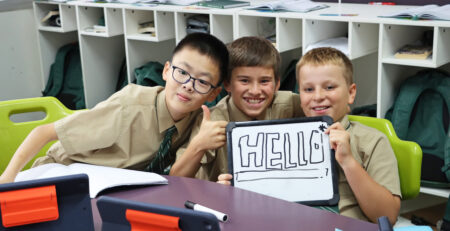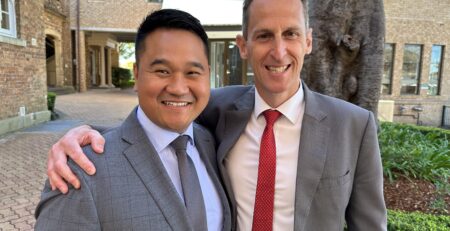Sea shanties, swords, and swashbuckling; Treasure Island thrills at Trinity
When it was announced that Robert Louis Stevenson’s Treasure Island would be produced at Trinity, no one expected there to be quite as much interest as there was. Unprecedented students signed up that the production team needed to get creative.
“The audition process was quite challenging because we were overwhelmed by the response by the students,” Ms Lauren Pasfield said. “Auditions lasted over two weeks, every single lunch time.”
To combat this incredible response, the team ended up creating more roles that weren’t there originally.
“Initially we had 22 roles. We turned one of the characters – the parrot, typically portrayed by a puppet – into a role that a student was able to play. We also created a pirate ensemble which was a lot of fun – the students made up their own names, created their own character backstories. Some of these characters ended up being the most memorable on the stage.
“We really tried to respond to the amount of interest that we were given,” Ms Pasfield says. “My main goal for this production was to be inclusive and have as many students involved as possible, which is why we pushed it for numbers – if I could have had more students on stage, I would have.”
Rehearsals went smoothly over 13 weeks with Mr Brett Steinwede choreographing the big fight scenes, while Mr Scott Bradburn composed some sea shanties, including a particularly-beloved shanty based on Smells Like Teen Spirit by Nirvana.
“The shanties brought boys together, they were a great vocal warm up and they provided a lot of fun, contributing to a really exciting vibrant atmosphere on stage. But most of all, they helped scene transitions run smoothly, keeping the boys in time – which exactly what they were used for on ships.”
And the students were happy to accept the rhythmic assistance as they navigated a set that rotated 360°, a real mast, ropes that needed to be pulled and sails that needed to be raised. For the style and the function of the play, the shanties worked a treat.
When lights went up to a sold-out season, their hard work paid off. And kept paying off.
“The performances of the production were constantly improving from the start of the season until the end. Every single student on stage improved immensely and learnt the value of including the audience in the play. Towards the end of the season, they were really connecting with the audience and telling the story, and I think that’s a sign of a mature performer. It’s about the audience, not the actor; it’s about taking them on a journey.”
“The boys learnt a lot about acting techniques and what is expected of them in terms of their acting craft. And that was definitely reflected in their performances. They were all very strong.”
Ms Pasfield says that the production owes much of its quality and success to the skills of the tech crew. From the 500 fairy lights strung on the ceiling to mimic the constellations and the management of an enormous amount of props, to the deft hand of the boys in charge of the sound design – crucial in a production full of pistols and canons firing and swords clanging – those behind the scenes played an important role.
“The cast and crew didn’t just need to keep track of what they were doing, they needed to have a comprehensive understanding of what everyone else was doing, on stage and off.”
That doesn’t mean that nothing went wrong.
“Backstage, there were a few close calls with swords,” Ms Pasfield laughs. “Wigs fell off – but it was so hilarious when grandma’s wig fell off, that we decided to keep the mistake and do it every single show.”
Treasure Island is her Directorial debut at Trinity, and Ms Pasfield says that she was keen to create a space where students could experience the inclusivity of theatre.
“Theatre is such a wonderful space where everyone is accepted and they can be whoever they want to be. I really wanted to create a positive and creative environment for the boys to play and learn.”
In a post on Trinity’s InSite platform, the Headmaster, Mr Tim Bowden, reflected that this goal was achieved, clearly evident from every seat in the sold-out theatre.
“The set design was brilliant, the technical aspects of sound and lighting were flawless, and the crew were appropriately invisible and efficient in their roles.”
“The Co-curricular life of the School offers boys a tremendously diverse range of opportunities to step into, and I am always delighted to see them do so. The boys who get the most from a Trinity education are invariably the ones who put the most effort into it. Engagement in the creative and performing arts can open the boys’ eyes to possibilities and worlds that they do not yet know, and give them experiences that they will not forget.
Ms Pasfield is looking forward to the next production, 39 Steps – directed by Mr Brendan Duhigg – and the enthusiasm the students will show for the challenge!

